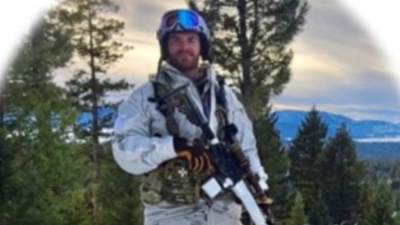The tragic death of Green Beret Matthew Livelsberger, who died by suicide in a Tesla Cybertruck explosion outside Trump International Hotel in Las Vegas on New Year’s Day, has shed light on the mental toll of war. The decorated Special Forces soldier had confided in his ex-girlfriend about the emotional scars he carried after serving in Afghanistan’s Helmand Province.
A decorated soldier, a hidden struggle
Livelsberger, 37, was a five-time Bronze Star recipient, including one with a “V” for valor under fire. His military career, marked by extraordinary bravery, was also shadowed by post-traumatic stress disorder (PTSD). “Just some concussions,” he told his ex-girlfriend, Alicia Arritt, in text messages, downplaying the trauma of combat, reported AP.
Arritt, a former Army nurse, recalled how Livelsberger spoke of the exhaustion and sleepless nights that followed him home. “He kept reliving the violence,” she said. The soldier’s anguish was reflected in a graphic tattoo he shared with her—two skulls pierced by bullets, symbolizing the lives he took in Afghanistan.
A silent cry for help
Livelsberger and Arritt met in 2018 through a dating app. Their shared military background created a bond, with Arritt often serving as his confidant. She described him as a man deeply affected by the horrors of war but hesitant to seek help due to the stigma within his Special Forces unit. “Mental health was seen as a weakness,” she said.
Despite his struggles, Livelsberger recently reached out for treatment for depression through the Army, according to an anonymous US official. However, the toll of years of silent suffering was apparent.
A tragic final symbol
In his final days, Livelsberger reconnected with Arritt, sending her cheerful messages and videos of the Tesla Cybertruck he would later use in the explosion. Arritt believes his actions carried symbolic meaning. “He felt things very deeply, and I could see him using the truck and the location as a metaphor,” she said.
Authorities confirmed that the explosion was not a terrorist act. In notes left behind, Livelsberger referred to his death as a “wakeup call” and a way to “cleanse the demons” of war.
Pain unspoken
Arritt, who treated traumatic brain injuries during her Army service, recognized symptoms of memory loss and withdrawal in Livelsberger early on. “He struggled, but he hid it well,” she said. She also lamented the military’s failure to provide timely mental health support.
On January 1, Livelsberger detonated the Cybertruck, which was loaded with fireworks, fuel, and mortar rounds, before taking his own life. Seven people were injured in the explosion.




